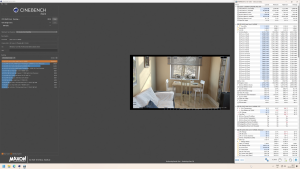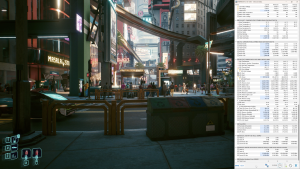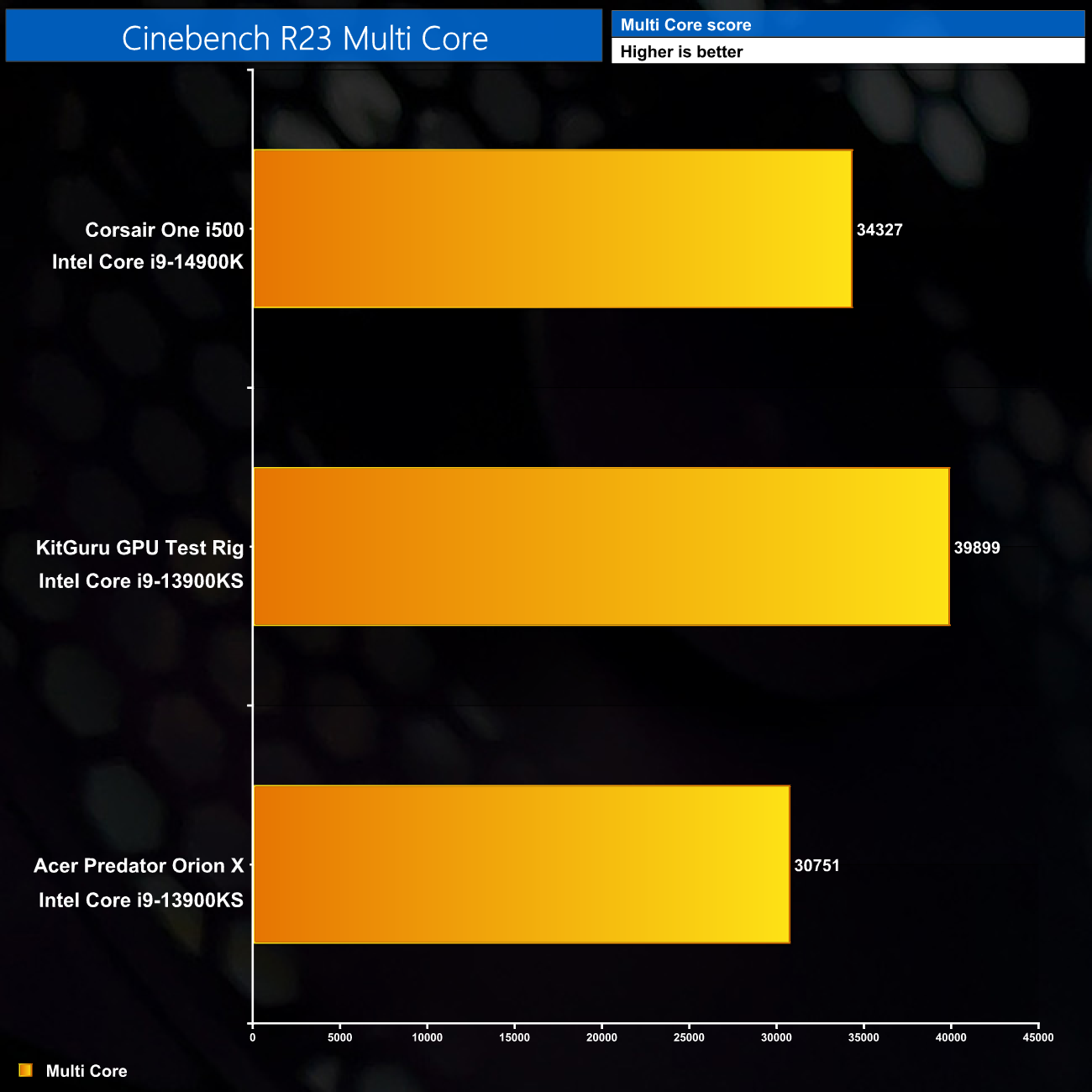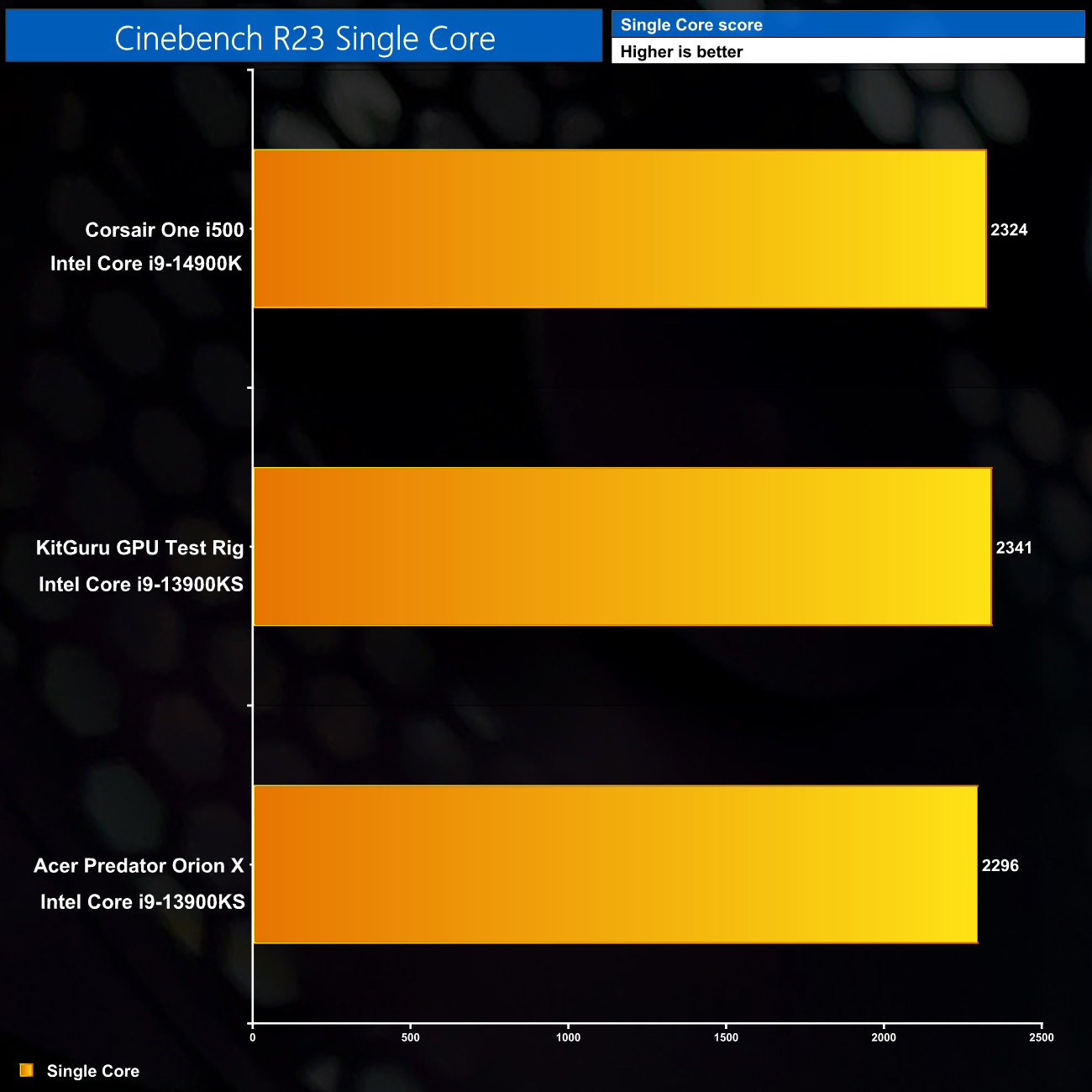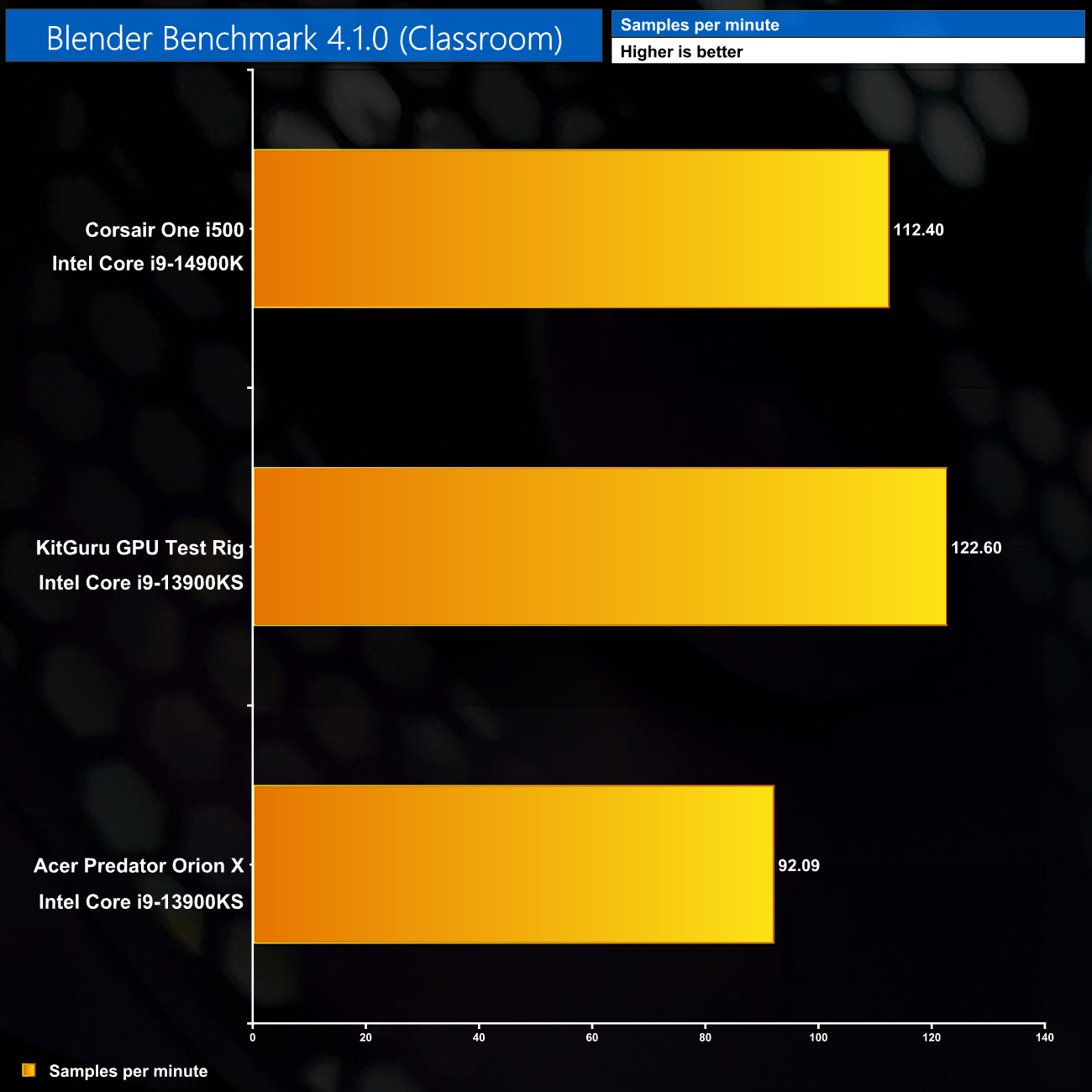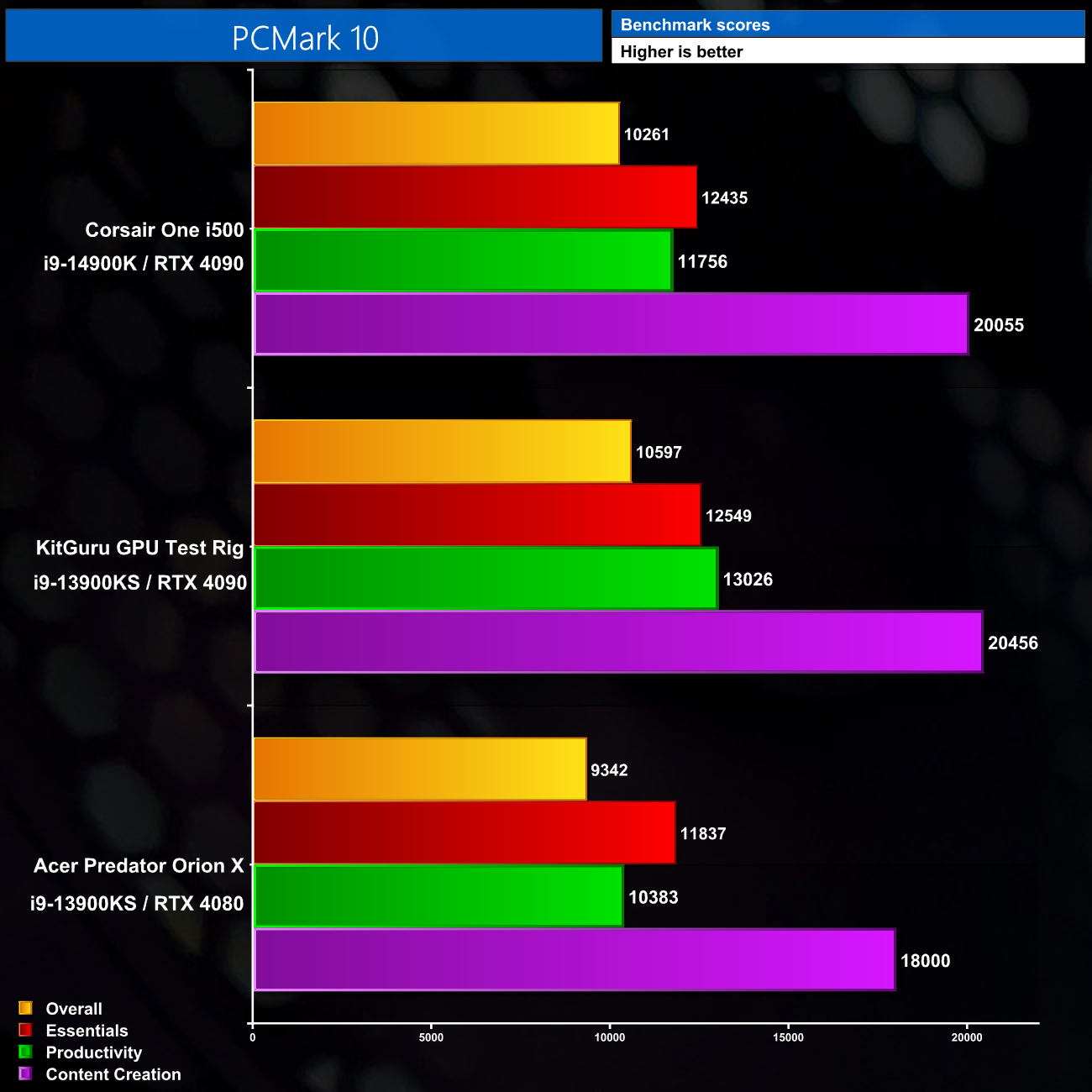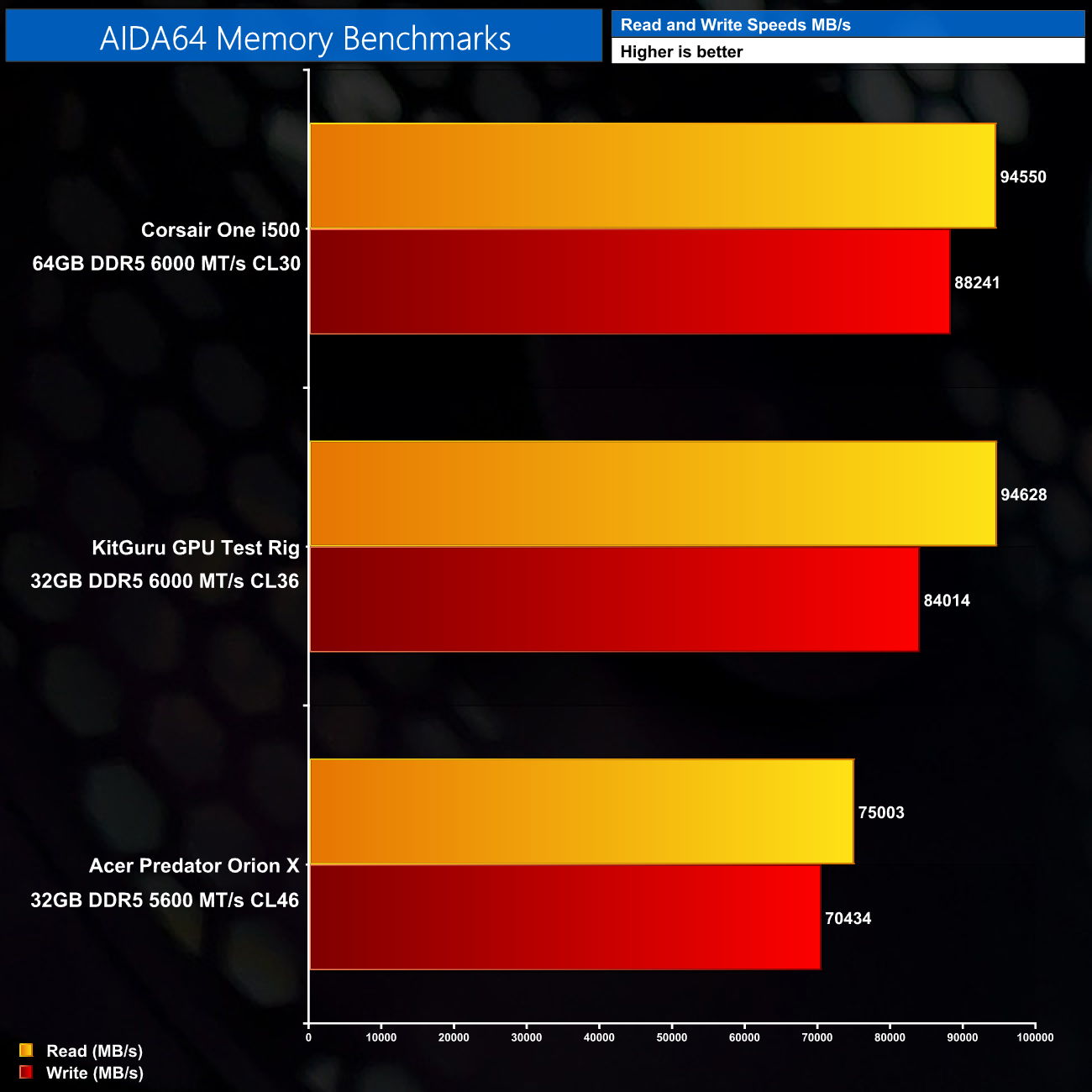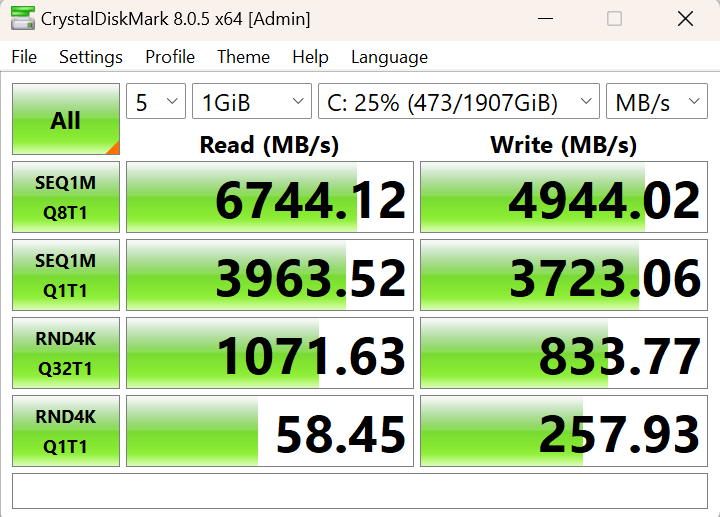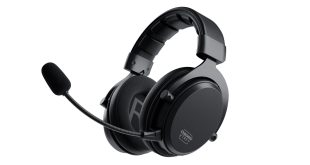Default CPU/GPU behaviour
Before diving into our benchmarks, it's worth just establishing stock behaviour of the CPU. Unlike the Corsair One i300, which used a 12900K with a 165W PL1, this new model has upped the power, and the 14900K has a 240W PL2 and a 200W PL1.
In practice then, this means the CPU will initially boost to 4.9-5GHz on the P-cores, before dropping back to 4.6GHz once the package power drops down to 200W. For reference, a completely stock i9-13900KS in the KitGuru GPU test rig runs at 5.6GHz on the P-cores initially, only settling down to 5.4GHz or so due to thermal constraints – so the 14900K in the One is definitely leaving some clock speed on the table, but this is likely due to thermal constraints.
Click to enlarge.
The GPU, meanwhile, is operating at about 2670MHz under 4K load, with board power reported in software at about 400W. The 4090 Founders Edition I used in the KitGuru GPU test rig ran a touch faster at 2730MHz, but it's a negligible difference.
Benchmarks
Cinebench Multi Core shows performance about 15% behind the completely stock 13900KS in the KitGuru Test Rig, due to the lower clock speeds.
Single core performance is basically unaffected however, as power limits are not an issue here.
Blender is another multi-core workout however, and this does show the 14900K in the One to fall behind the 13900KS in our own test rig, this time by a 9% margin.
PCMark 10 is much of a muchness, there's not a whole lot of difference between the systems – the higher clocks do help our own test rig to slightly higher scores, especially in the Productivity workload.
Memory bandwidth is a real strength of the One however, given its tight timings and CL30 latency. It delivers about 95000 MB/s reads and 88000 MB/s writes.
GPU performance from the RTX 4090 in the Corsair One is right where we'd expect, hitting over 36000 points in Time Spy. It's behind the 4090 Founders Edition we used in our test system, but only just.
Lastly, as for the 2TB Samsung PM9A1, this delivers pretty much what we'd expected in terms of read and write speeds, hitting 6700MB/s reads and 4900MB/s writes. As a reminder, the B760 motherboard used here doesn't support Gen5 M.2 drives, so you couldn't get much faster storage than this in the Corsair One.
 KitGuru KitGuru.net – Tech News | Hardware News | Hardware Reviews | IOS | Mobile | Gaming | Graphics Cards
KitGuru KitGuru.net – Tech News | Hardware News | Hardware Reviews | IOS | Mobile | Gaming | Graphics Cards


